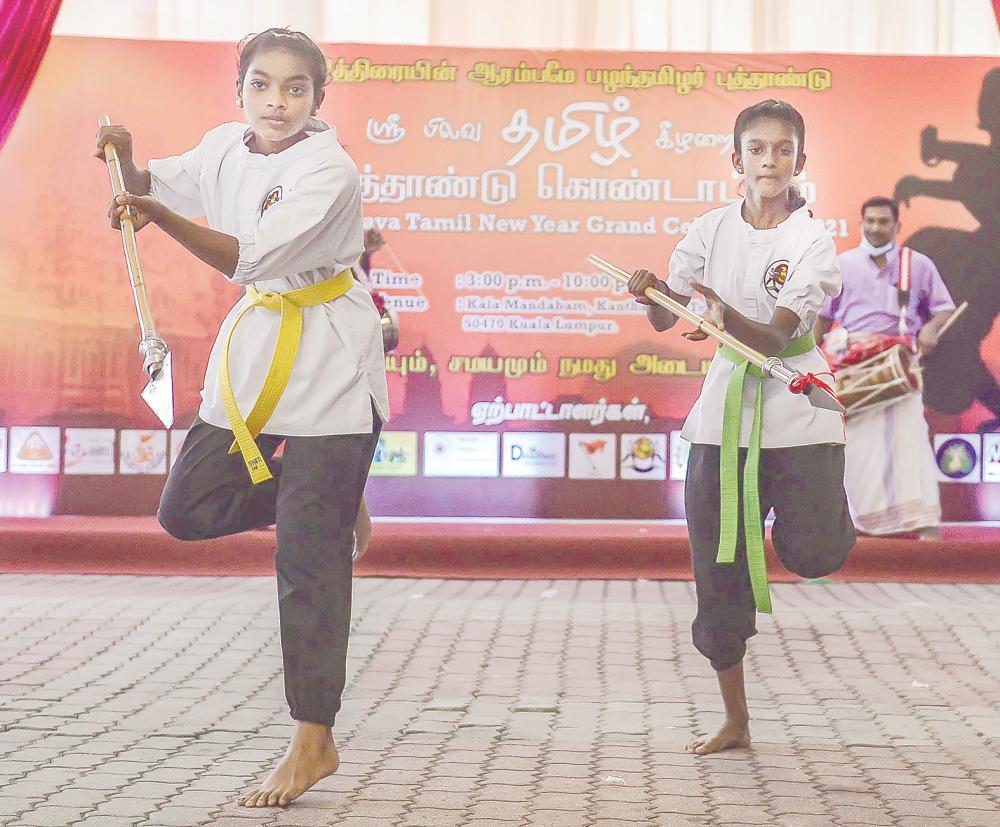PETALING JAYA: As of July 2024, ethnic Indians made up 6.5%, or 2.2 million, of Malaysia’s multiracial and multicultural population, but traditional Indian practices have generally declined.
However, two organisations have dedicated themselves to helping the community regain interest in their traditional art forms – Silambam and Bharatanatyam.
Malaysia Silambam Association president Dr Suraess Muthusamy said interest in Silambam grew after its official inclusion in the Malaysian Games in 2020 but more needs to be done.
“Silambam is not just a martial art. It carries deep historical, spiritual, and cultural significance. By practising it, younger generations stay connected to their roots and keep traditions alive.
“Beyond self-defence, Silambam integrates Tamil philosophy, discipline, and physical fitness. We are making Silambam more accessible through school programmes, workshops, and competitions,” he said.
Public interactions through storytelling, historical references, and lessons on ancient warriors help students gain a deeper appreciation for Silambam.
Although the martial art has deep Indian roots, the association promotes it as an inclusive art form that anyone can learn, regardless of ethnicity.
“To combat the belief that traditional arts are outdated, we modernised training by incorporating fitness, sports elements, and
self-defence techniques.
For 15-year-old Lenasshree Kamalakannan, her Silambam journey began at age six when her mother introduced her to it.
Lenasshree has spent over nine years training and transforming from a beginner to a gold medallist at the Asian Open Silambam Championship 2024 held in Doha, Qatar.
“Martial arts do not just shape the body but also the mind. The patience, focus, and resilience I’ve learnt through Silambam have helped me in all areas of my life,” she said, adding that she believes the martial art is a reflection of Indian culture, a heritage that must be preserved and passed on.
Lenasshree actively contributes by training her younger sisters, ensuring that they too become part of this legacy.
“If we start young, we can build not just great fighters, but great individuals who carry our culture forward with pride,” she said.
Mahavidya Dance Theatre founder and acclaimed dancer Sheela Raghavan has dedicated her life to teaching Bharatanatyam and preserving Indian culture through the classical dance form.
Over the years, she has seen fluctuations in student enrolment, especially due to challenges like the Covid-19 pandemic. However, while interest in this classical dance remains strong, Sheela noted that transport issues and financial constraints often impact student attendance.
“We offer free lessons as a non-profit organisation, but financial struggles can be a hurdle. One student, who was learning the dance for six years, faced difficulties due to a parent’s illness. However, she kept practising on her own and we provided online classes to support her.
“Despite the dedication of our many students, awareness of Bharatanatyam’s cultural significance still needs to be strengthened, and one major barrier is their Tamil proficiency, which causes them to struggle to understand the deeper meanings within the dance.”
Sheela believes Bharatanatyam plays a vital role in preserving Indian culture, especially in Malaysia, where the community is shrinking in numbers.
Beyond the performance, she said Bharatanatyam helps individuals develop a stronger sense of self-identity and well-being, which is crucial in today’s fast-paced world.
“By staying connected to our roots and growing with time, we can keep our ancestors’ spirit alive and inspire future generations. Just as importantly, I have always believed dance can unify the people and build their
self-confidence and pride.”
The Mahavidya Dance Theatre is unique in Malaysia as Sheela teaches the Vazhuvoor style, which is one of the four original styles of Bharatanatyam.
Her senior students are being trained to teach as they have vast experience, having performed in Singapore, Indonesia, Thailand and other countries.









